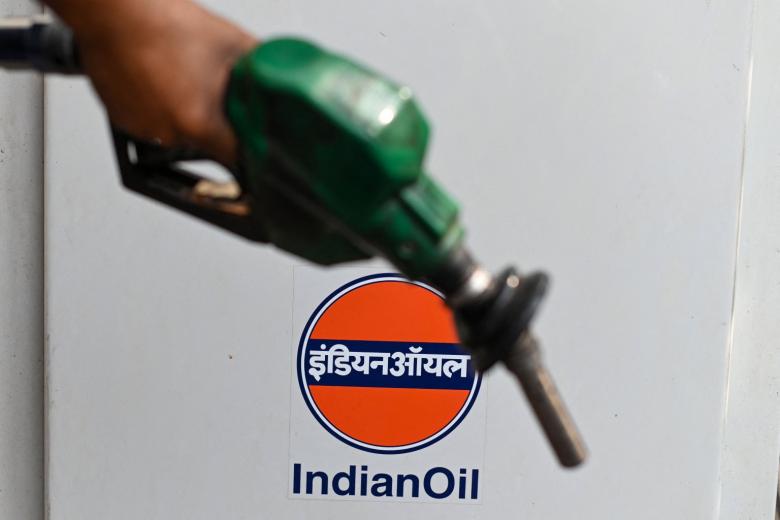
India is the world’s third-largest consumer and importer of oil, importing about 80 per cent of its oil needs. PHOTO: AFP
NEW DELHI/BANGALORE – As inflation rises in India, Prime Minister Narendra Modi’s government may be set to buy more barrels of discounted Russian oil and revive rupee-rouble trade.
India is the world’s third-largest consumer and importer of oil, importing about 80 per cent of its oil needs. With Western sanctions imposed on Russia after its attack on Ukraine turning off some European buyers, Moscow is now offering oil at a discounted price to Indian companies.
State-owned Indian Oil has reportedly bought three million barrels of Russian oil, while Hindustan Petroleum has ordered two million barrels. Nayara Energy, which is partly owned by Russian oil giant Rosneft, has ordered 1.8 million barrels.
The purchase prices are not known, but the Financial Times reported that Russian Urals oil, the country’s flagship crude blend, was being offered at a discount of about US$25 to US$30 a barrel.
To be sure, the amounts purchased by the three Indian companies make up a drop in India’s oil imports bucket. The country is estimated to need about 5.15 million barrels of oil daily this year.
Most of India’s oil imports come from West Asia, with nearly a quarter from Iraq, followed by Saudi Arabia and the United Arab Emirates. Less than 3 per cent comes from Russia.
The Kremlin may be seeking to raise that number. On March 11, according to a Russian government statement, Deputy Prime Minister Alexander Novak told Indian Petroleum Minister Hardeep Singh Puri in a telephone call: “Russia’s oil and petroleum product exports to India have approached US$1 billion (S$1.36 billion), and there are clear opportunities to increase this figure.”
Some of India’s state-owned oil companies may welcome the bargain prices. Despite international crude prices surging to more than US$100 a barrel since the invasion, the Indian central government did not revise petrol and diesel prices for over four months, possibly to avoid annoying voters ahead of important state elections.
The freeze may have cost state fuel retailers about US$2.25 billion in revenue, according to Moody’s.
“India will look to revive rupee-rouble trade like it used to have with the Soviet Union. The big challenge now is how to establish the exchange rate of rupee and rouble,” said economist Suman Bery, a senior fellow at the Centre for Policy Research in New Delhi.
He added that such “local currency settlement” was the subject of a lively debate ahead of the Group of 20 summit in Indonesia, with member countries asking if it was in everybody’s interest to have so much global trade be denominated and settled in US dollars.
The Indian government has vociferously defended its position to import Russian oil, pointing out that many European countries continue to buy Russian oil and gas.
External Affairs Minister S. Jaishankar told Parliament on Thursday (March 24): “We import very little oil from Russia… Many other countries import 10, 15 to 20 times the amount of oil that we do… the entire Europe is importing petroleum from there and they lecture us.”
Other than India, countries like Germany, Bulgaria and Greece continue to buy oil from Russia.
India and Russia are one-time Cold War allies that have continued to share close defence ties. But at the same time, India has drawn closer to the United States amid convergences over the rise of China. This has led to India carefully balancing its position in the Ukraine crisis.
At the United Nations, it has refused to directly condemn Russia for the war and has abstained from a number of votes against Moscow.
Oil purchases, in particular, have come under the Western radar, with India facing pressure for continuing to do business with Russia. US President Joe Biden called India “shaky” in acting against Russia.
Still, other statements from Washington have been more measured, with White House press secretary Jen Psaki last week saying the US recognised “India’s economic reasoning” for buying oil.
Mr Nandan Unnikrishnan, a distinguished fellow at Observer Research Foundation in New Delhi, said Russia was an important diplomatic partner.
“They support us in the UN and openly supported decisions in Kashmir. Even if India does take a critical position against Russia, the benefit should be commensurate, which it is not. Nothing has changed that requires India to change its posture. We have interests on both sides of the fence that we need to protect,” said Mr Unnikrishnan.
“The Western criticism of India’s oil purchase is all hypocrisy, as more than half of Europe is still buying oil from Russia,” he added.
RELATED STORIES
UK says Russian sanctions could be lifted with Ukraine withdrawal—report
Woman of 90 and daughter flee Ukrainian city of Chernihiv just in time
Biden says ‘butcher’ Putin ‘cannot remain in power’
Russian oligarchs welcome in Turkey, foreign minister says